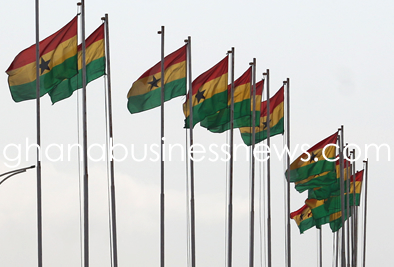Ghana improves overall ranking on Social Progress Index
 Ghana has improved its ranking on the Social Progress Index, released last week. Ghana is among countries that have made improvements in the indicators measured by the Index.
Ghana has improved its ranking on the Social Progress Index, released last week. Ghana is among countries that have made improvements in the indicators measured by the Index.
The Social Progress Index, by the Washington-based Social Progress Imperative, is a comprehensive measure of societal performance based entirely on social and environmental outcome indicators, the CEO of the organization, Michael Green has said.
“It is a holistic measure of the quality of life of 98 per cent of the world’s population. Looking at trends since the Index was launched in 2014, the 2017 report shows that there has been a small but significant increase in world social progress over that period from 63.19 to 64.85 (on a scale of 0-100). Moreover, the majority of countries – 113 out of 128 – have shown improvement.
More worryingly, we see little or no progress for the world in areas such as personal safety and tolerance and inclusion, and the world has gone backwards in this period on personal rights. It is deterioration in these factors that caused some of the biggest falls in social progress, notably in Hungary and Nicaragua,” he said.
He noted that Denmark topped the ranking this year, adding that indeed, the Nordic countries all made it into the premier league of countries with very high social progress. But they don’t have a monopoly. Canada, the Netherlands, Australia, New Zealand and the UK also made it into this top category,” he said.
“Nor is Denmark, as the top ranked country a social progress paradise. The Index highlights areas where Denmark could and should be doing better, such as on life expectancy, the number of boys dropping out of school and religious tolerance.
Of the G7 countries, Canada comes out on top on social progress, with the UK second. But both countries have made no gains since 2014, although prospects for the UK with ongoing austerity and Brexit look more challenging. Germany joins Canada and the UK in the very high social progress category for the first time, thanks to a jump in performance on tolerance and inclusion over the past three years. Japan has also posted significant gains since 2014 although is still in the second tier (high social progress),” Green said.
According to the Index, the largest divergence in scores is in the area of Personal Rights, citing two sub-Saharan African countries in this group, Ghana and Senegal, it said they scored fairly well with scores of 80.10 and 74.75 respectively.
The Index noted that five countries in this tier register the lowest five scores of all countries on Personal Rights (Uzbekistan, China, Tajikistan, Azerbaijan, and Iran).
“These countries have restrictive political systems or remnants of prior systems that deviated from the democratic systems found in leading European nations and the Americas. In Egypt, where democratic systems have remained unstable, country performance on Personal Rights is extremely low as well, achieving a score of only 28.14,” it said.
The Index cites Ghana among others as having done well in the area of access to higher education. The Index points points that while Access to Advanced Education in sub-Saharan Africa is low on an absolute level, there are positive developments.
“In 2014, only South Africa had globally ranked universities, but by 2017, this list expanded to include Ghana, Kenya, Nigeria, and Uganda. Locally-based, globally well-regarded universities undoubtedly provide greater opportunity to students, but also provide benefit to countries by keeping talented potential future leaders in the country, as well as being a conduit and amplifier of cutting-edge knowledge,” it said.
The country is doing well in political freedom, freedom of expression and freedom of assembly among others, but underperforming in the areas of access to improved sanitation facilities, quality of electricity supply and household air pollution attributable deaths.
By Emmanuel K. Dogbevi
Copyright © 2017 by Creative Imaginations Publicity
All rights reserved. This news item or any portion thereof may not be reproduced or used in any manner whatsoever without the express written permission of the publisher except for the use of brief quotations in reviews.
